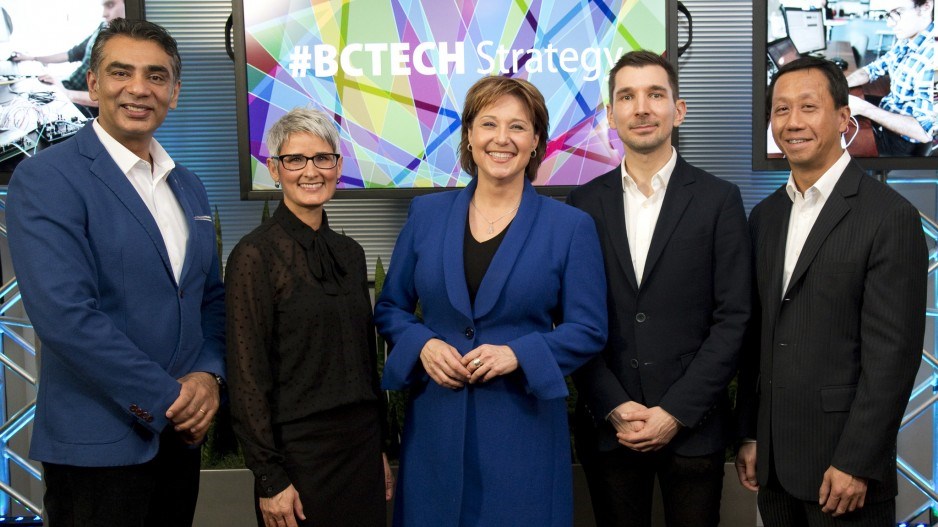If growth among B.C. tech startups is being hampered by the lack of venture capital on the West Coast, the provincial government is counting on a $100-million investment of its own to jumpstart activity.
Premier Christy Clark announced Tuesday (December 8) at Mobify’s Vancouver headquarters that a newly created B.C. Tech Fund would target companies needing early-stage — or Series A — funding.
“We have to find ways to make sure there are more success stories in tech in this city and in places all across the province. But it’s difficult to get a tech company started,” she said.
“That tech fund will be there to support these small companies (to) become medium-sized and then big tech companies that are going to lead tech all around British Columbia.”
Brent Holliday, CEO of Vancouver-based Garibaldi Capital Advisors, said investment in Series A funding has been flat the past few years in Vancouver. Most capital raised, he said, have been going to the mid-size, high-growth companies such as Hootsuite, Vision Critical and BuildDirect.
While Holliday said the B.C. Tech Fund is a “bold” step for the government to take, there is still the risk it could backfire if the province doesn’t strike the right balance between capital, talent and innovation.
“You want to make sure that you’re not pouring too much gas on the fire and creating too many startups,” he told Business In Vancouver.
Too much money means startups could become overvalued at the same time the region’s talent pool becomes stretched thin, Holliday said.
“You always worry about the government because there’s always an out-clause,” he said.
“What’s the commitment like if the government changes? What’s the commitment like if there’s no LNG revenues?”
Clark said the fund, which will launch in 2016, would not be managed by a civil servant but by a fund manager from the private sector.
“We don’t want to be influencing (which startups will receive funds), except that we want them to be in British Columbia and we want the fund manager to have a managing partner based in B.C. Probably it’ll end up being in Vancouver,” she said.
Bill Tam, CEO of the B.C. Technology Industry Association (BCTIA), told BIV the province had consulted thoroughly with the tech community — including his own organization — to find the best ways to make the sector grow.
For instance, the BCTIA’s own policy platform already recommends creating access to “about $100 million to leverage against private capital,” said Tam, who attended the announcement with Clark.
He said companies like Hootsuite or BuildDirect have been able to build off funding they received in the mid-2000s and are now experiencing high growth.
“The issue we found is that there’s so many new companies that have come about but not nearly the capital availability,” Tam said.
“To make sure we have the next generation of the Hootsuites, the Avigilons, the BuildDirects now is the time to invest.”
Not all the money will be coming from the provincial treasury. Victoria expects a portion of the fund will be covered by returns it expects to gain from it after 2023.
The government expects the fund will last no longer than 15 years.




